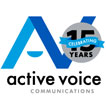There are a lot of components to being a good PR/Marketing/Media professional. Yes, being a good writer or editor is one expectation. Understanding the business. Delivering creative ideas. Providing stellar customer service — or at the base level, at least returning phone calls and e-mails. (This gets missed more than you might realize.) And we’re also expected to understand and engage in social media.
But here’s something that I’m finding is often overlooked — if you’re a reporter, follow your sources. If you’re a PR/marketing pro, follow the reporters that cover your industry. Work for an agency or maintain clients as an indie? Follow your clients.
It seems so basic, but we’re so absorbed in this world of social media, and everyone is trying to figure out how to monetize it. How can you drive traffic to your Web site via Twitter? How can your YouTube video become viral? How can Facebook help your blog get noticed? Great goals, but as we sit around figuring out how to grow our business or make money or get noticed, we’re focused on our output. And when we focus on the output, we’re probably ignoring what others are saying. We stop listening (if we ever were in the first place).
But there are reasons — obvious ones! — to listening as much as you speak. In the world of Twitter, short bits of information are broadcast at a rate that is often hard to keep up with. But the problem with tweeters is that they tend to follow people who are trendy (Grrr, who cares about Ashton) or who they want to follow them back. Instead, your strategy should be to sure, follow people you find entertaining, but also follow those who can teach you something, enlighten you or help you in your work. Reporters seek out sources via Twitter — so why aren’t you following the reporters who cover your industry?
What about following clients? Unless you’re maintaining your client’s Twitter account or ghost writing the blog, you should be reading these communiques. It A) Provides you with additional insight into the company, which may provide an opportunity for business — or least keeps you looking engaged and B) Gives you information that you can use as a conversation starter — again, showing your client you care enough to use nonbillable time to keep tabs on the company.
Yes, we’re all busy. But many of us are busy putting messages out into the world through our blogs, our tweets, our fan pages, etc. So, why not take some time to sit back and listen. This may be one of the most important things you can do to perform better at your job.
